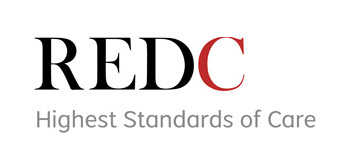The REDC was formed in December, 2011 to serve as a professional association of eating disorder treatment providers, focused on standards, policy, research, ethics, and best practices. Originally, REDC stood for as the Residential Eating Disorders Consortium, as all REDC members were eating disorder treatment programs offering 24/7 care. In 2020, REDC expanded the name and membership to include all higher levels of care, and is now the consortium representing eating disorders care across all higher levels of care. Membership in REDC is open to eating disorder programs offering a higher level of care treatment including Inpatient, Residential, PHP (Partial Hospital Program or Day Treatment), and/or IOP (Intensive Outpatient Program) levels of care and meeting REDC established standards. REDC represents about 80% of the higher level of care for eating disorders delivered in the US underscoring REDC’s position as a key voice representing the entire spectrum of eating disorders care.
In recent years, REDC has been at the forefront of national and state advocacy efforts to raise industry standards and expand access to care. Some highlights include:
- Accreditation by CARF: Key REDC members and leaders — along with the Academy for Eating Disorders (AED), the National Eating Disorders Association (NEDA), and the International Association of Eating Disorders Professionals (iaedp) — were integrally involved as the Commission on Accreditation of Rehabilitation Facilities International (CARF) released standards for accrediting eating disorders treatment programs in the 2013 Behavioral Health Standards Manual. This marked the first eating disorders-specific accreditation in behavioral health care.
- Accreditation by The Joint Commission: REDC’s continued advocacy directly led to The Joint Commission establishing accreditation requirements for behavioral health care organizations that treat patients with eating disorders. These requirements, which took effect in July, 2016, were critical steps in providing accountability to patients and families.
- Mental Health Parity: Advocacy efforts, led by the Eating Disorders Coalition for Research, Policy, and Action (EDC), of which REDC is a proud member, also resulted in the passage and signing in 2016 of the 21st Century Cures Act, which includes provisions of the Mental Health Reform Act of 2016 and the Anna Westin Act of 2015. The 21st Century Cures Act explicitly clarifies that the Paul Wellstone and Pete Domenici Mental Health Parity and Addiction Equity Act of 2008 (MHPAEA) applies to eating disorders treatment, including 24-hour care settings.
- Standards of Excellence Project (STEP): Launched in November 2018, REDC’s STEP is a collection of works demonstrating REDC’s continued commitment to raising industry standards and professionalizing the field. STEP represents the strongest, clearest declaration yet of the patient-centered values, beliefs, and principles that guide REDC’s members in their work every day. Click here to learn more.
